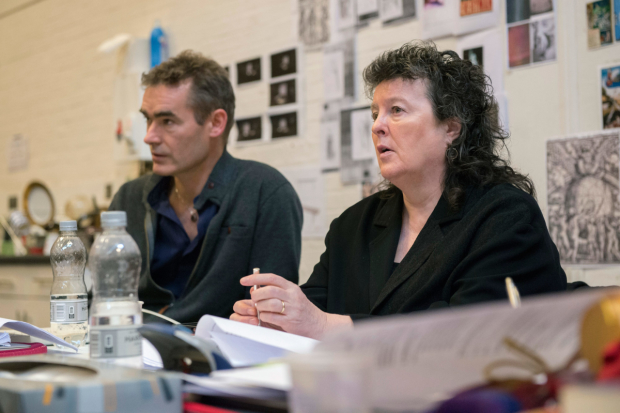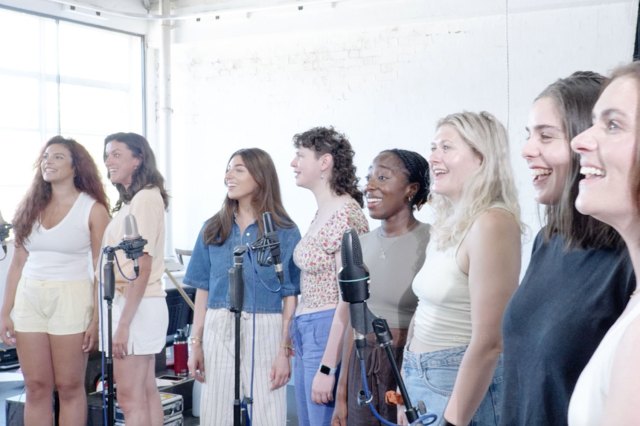How they created the NT's Brexit play My Country
As the National Theatre’s new play about the British people and their views on Brexit opens, ‘gatherer’ Campbell Lawrie explains the process

© Richard Hubert Smith
I was asked if I would assist on My Country: A Work in Progress as a 'gatherer'. It's not an official title, but it's what we've been come to be known as. Our job was to go out into the community to gather feedback about how people felt about Brexit. It was called The Listening Project at first, because the main emphasis was that people weren't being listened to. We hear a lot of noise from Westminster, the Scottish government, the Welsh government and the European parliament but we wanted to find out what people in the street think and feel.
Originally there were four of us involved, one from each country that makes up Great Britain. We received training from a research company who gave us lessons on how to get people to open up and talk about their feelings. It's quite difficult to get someone to tell you exactly how they feel. After that we went back to our own countries – I work normally at Citizens Theatre in Glasgow – and went out into the community to search for people who might be interested in talking to me.
I put a call out on social media and I worked through my existing contacts and got a mixture of ten people who were keen to give their feedback and people who needed to be coaxed. But that was the right balance. The 'flashies' – what the research company called them – were the people who wanted to give their opinion, but we were also interested in what marginalised people in society might think.
People were tired of being lied to and people just didn't trust politicians
The people I spoke to were quite a range, so I had someone with a background in the NHS, in education, someone who had been through the justice system and I spoke to a mother and son as well.
We sat down with them for around two and three hours – one of my interviews was almost four. My research method was to put together a timeline of the person I was talking to and ask them to pinpoint certain areas in their life which might have led to their decision on their voting on Brexit. I also wanted to look at what in their lives might have led them to vote Labour, or SNP. We were able to create this picture of each individual and get their feelings on British values and whether they were similar to Scottish values.
We found a lot of voter fatigue in Scotland. And a lot of distrust based on the independence referendum. People were tired of being lied to and people just didn't trust the politicians or anything anyone said in the media. Some of them felt they couldn't make an informed choice, so therefore they just didn't vote at all.
I found that the way people I spoke to voted correlated with the map that came straight after the Brexit vote. There were a lot of people who voted to remain in the EU and the majority of people who were slightly for leaving the EU were the ones who didn't vote because they didn't see the point. Quite a few people I talked to voted for independence, and then subsequently changed their mind basically because it came out later in the media that no one had a clue what was going on.
One of the most interesting interviews was the mother and son. We had a joint conversation with them, and they had very different political opinions, but were very respectful of each other's opinions. We got a very clear indication of the dynamic of their politics and how different generations might be voting or were engaged in politics.
The hopeful thing I took away from it was that people in Scotland were far more politically aware after the independence referendum. People were so willing to be engaged and wanted to tell stories. Even if they were reluctant at first, they opened up. The people I spoke to weren't theatregoers, so this has given them an insight into how theatre works and I hope this encourages people to go out and be more politically active and realise that what they are reading in the papers isn't how everybody feels. The media is good at generalising and pigeon-holing. I hope it will give them the courage to incite change.
My Country: A Work in Progress runs at the National Theatre until 22 March and then tours the UK.













